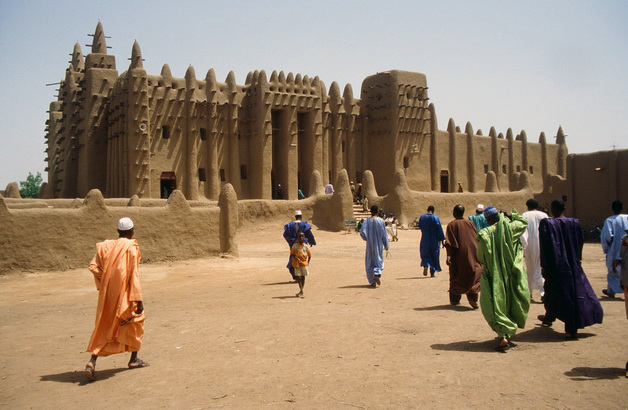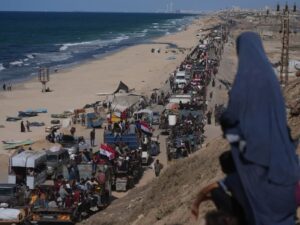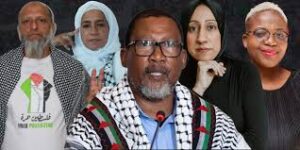
Great Mosque of Djenné, Mali [Photo Credit - Herr Hartmann]
The congress aims to strengthen ties between Muslim communities in their respective African regions by producing and disseminating meaningful socio-cultural knowledge embedded in Islam, writes an Al-Qalam Reporter.
The spread of Islam in Africa and its impact on everyday life across the continent will be the focus of the Third International Congress on Islamic Civilisation in Southern Africa to be held at the Islamia Auditorium in Cape Town from September 16 – 18.
The 3rd International congress on ‘Islamic Civilisation in Southern Africa’ is jointly organised by IRCICA the Research Centre for Islamic History, Art and Culture institute of the Organization of Islamic Conference (OIC), Awqaf South Africa, the University of the Western Cape and supported by Islamia College and others.
An Awqaf representative told Al Qalam: “Islam has had a major influence in Africa since its introduction to the region in the early 6th century. A commonly overlooked fact is that Islam in Africa predates the City State of Medina. More than 60% of Africans are Muslims and numerous Muslim cultures and civilisations flourished in North, West, East and Southern Africa. In some parts of Africa Islam thrived, though often under difficult circumstances for centuries and made significant contributions in all spheres of life.”
The spokesperson added: “The history of Islam and the formation of Muslim communities in southern Africa pre-date the European colonial incursions; in fact, the presence of Muslim communities in the region goes back to the 16th and 17th centuries. However, in the narration of the history of the emergence and evolution of smaller Islamic polities in parts of southern Africa, the standard literature seems to have understudied the socio-political histories of these Muslim communities in an even-handed manner.
The congress will examine topics such as the spread of Islam in Southern Africa; the relationship between trade and Islam; language and Islamic literature; Islamic education and intellectual development; history, contribution, and challenges; colonialism and democracy; coexistence of cultures; arts and crafts, architecture, and archaeology; future perspectives; Muslim media; influential figures; establishment of financial institutions; community-state relations & NGOs.
Contributions
Papers will be presented by a range of scholars from the SADC Region and beyond.
Researchers will assess the degree to which Muslims communities and organizations (as socio-religious, political, economic, and cultural institutions) have made and can make qualitative contributions to their respective nations.
The Third International Congress also aims to give an ear to and open a venue for discussing the contemporary problems from the sub-region’s perspective, under the light of the historical experience of the Muslim communities.
One of the speakers at the Congress will be Dr Imraan Buccus, a media analyst and editor of Al-Qalam.
Buccus will present a paper on the role of Muslim media in driving a socio-political transformation agenda in SA, looking particularly at the role of Al Qalam during the anti-apartheid struggle, and how and why it became one of South Africa’s ‘alternative press’ in the 1980s.
Buccus said that the Al Qalam presentation will also look at the role Al-Qalam continues to play in the post-apartheid era and how it embraced new projects that make up an important part of the current socio-political landscape, and to what extent Al-Qalam responds to issues within a pervading neo-liberal context.
He pointed out that there was an important need to monitor the contribution of South Africa’s Muslim media industry over the years. He further explained that Muslim media plays an important role in contributing to the national (Muslim) discourse especially during critical and traumatic periods of recent history and said that this is indeed commendable. “The role of the Muslim press cannot be ignored by scholars,” he said.






